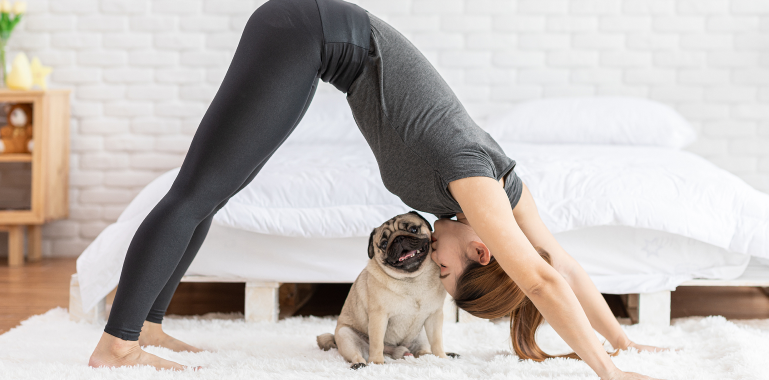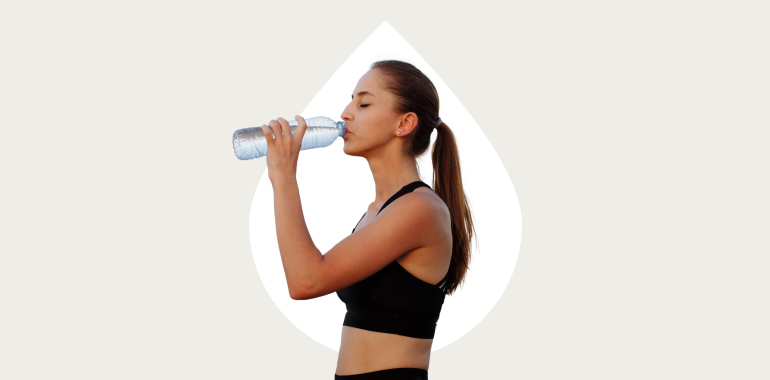Table Of Contents
Why is it so Hard To Get Your Motivation Up?
Almost everyone has felt a lack of motivation or drive at some point in their lives.
It’s pretty simple to lose motivation. After all, it’s the path of least resistance, and it’s not always natural to be motivated. Nonetheless, in order to enhance our personal development and well-being, as well as keep on top of mental health difficulties, it is critical to understand how to overcome those times when you simply lack motivation with the help of online counseling.
We can accomplish much in life if we are motivated to get things done. However, if you are finding it difficult to care because you lack drive, one of these six factors could be the source of your lack of motivation.

Why are you may be so tired before a workout?
Because having a mind is a massive hindrance to your happiness. How frequently do you require encouragement to drink water? The point is, the closer a “thing” is to your immediate well-being and the shorter the time before pleasure, the more likely you are to do it on the spur of the moment and even see it as effortless.
The inverse is true. The greater the time/effort required and the greater the gain (or, the more complex and unrelated the gain), the less likely you are to be motivated.
Everyone suffers from a lack of motivation in various ways. What impedes some may not impede others at all. The first step in overcoming procrastination is to recognize your motivation issues.
Consider which ones pertain to you the most. Here are six reasons why you may be lacking motivation:
- A lack of dedication.
- Problems with mental health.
- Overstretching yourself.
- Doubts about oneself.
- Insufficient specificity.
- Negative attitude.
Put this article on your to-do list right now if you want to learn how to increase your motivation, practice self-care, and become the best version of yourself.
How the Science of Motivation Can Help You Hit Your Energy for Gym
According to a recent survey, 79 percent of respondents feel happy when they follow a regular fitness plan. However, 51 percent responded that sitting at their desks for eight hours a day saps their energy and ambition to exercise. So is there a method to fool your brain into getting in that daily workout?
A solid workout may be easier to attain than you believe. But first, identify your tiredness triggers. Whether it’s a long day at work, too many zoom calls, or a nasty meeting, you’ll need to approach your workout with a clear head.
Motivational Understanding
The phrases intrinsic and extrinsic motivation are well-known among fitness experts.
Intrinsic motivation, as the name implies, arises from the inside; it is derived internally rather than from an external source. In practice, intrinsic motivation drives people to participate in an activity, such as exercise, for the sheer pleasure or satisfaction it provides.
On the other hand, extrinsic motivation is generated from direct environmental input or is mediated in some way by social interaction. People may be extrinsically motivated to exercise, for example, by praise and support from family members or a physician.
Motivation Evaluation
Frederick and Ryan (1993) developed the Motivation for Physical Activity Measure, a 30-item, a self-reported questionnaire designed to examine motivations for engagement in sports, exercise, and physical activity. Questionnaire respondents evaluate the reasons they participate in various activities by scoring elements that fit into the five motivational categories listed below:
- appearance
- social
- fitness
- competence
- interest/enjoyment
Fitness experts can use the results of this questionnaire to identify their clients’ top personal motivators and boost energy before a workout. For example, an appearance incentive could be to improve body shape or muscle tone.
Meeting new individuals in a group fitness session might be a social motivator. A fitness motivator would be to gain physical strength. Learning or improving a specific ability could be a competency motivator.
Finally, engaging in physical activity just to have fun would be an interest/enjoyment motivation.
Immediate rewards
According to a study published in the Journal of Personality and Social Psychology, immediate rewards inspire people more than delayed ones at work. If benefits encourage people to do well at work, they can also motivate them to exercise.
They discovered that rewarding yourself soon after completing a task positively affected doing that task frequently. It also helps to relate the reward to the study mentally.
So, as soon as you get out of the gym, get yourself a great smoothie, a biscuit, or some peaceful downtime. Connect these incentives to your workouts, and you’ll also find yourself looking forward to them.
While you exercise when you are tired, your brain perceives your limits to be lower than they are, resulting in shorter and less impactful workouts. So instead, think pleasant thoughts and smile despite the discomfort of distracting your mind.
According to a recent study published in the journal of human sport and exercise, ‘The Eye of the Tiger’ is one of the best motivational songs of all time! The sense of effort is altered by music.
Inspirational jams enhance athletes’ endurance, speed, and running capacity. In addition, the correct beverage might boost your brain’s “go” capacity. For example, cycling riders who wet their mouth with a sports drink finished a time trial at least a minute ahead of the control group, according to a study published in the journal physiology.
How to Get Energized Before a Workout?
Imagine one situation. It’s difficult for you to inspire yourself to exercise because I’m constantly fatigued. You tried eating a banana before exercising, but it didn’t help.
Even when you really want to work out, finding the motivation to lace up your running shoes, attend that group fitness class, or hop on your bike might be challenging. There are numerous reasons why you may feel exhausted, unmotivated, or “blah” before working out. However, there are just as many ways to get through.
You are not alone if you notice that your energy levels drop before an exercise. According to fitness trainer Kari Landey, it’s one of the most common reasons for skipping a workout. “People frequently feel fatigued and believe that working out would drain their vitality even more,” she says. Unfortunately, even though it’s generally true, it’s difficult to remember when you’re yawning or sitting on the couch.
It’s also difficult to imagine yourself getting out of bed early to go for a morning run or turning into the gym parking lot on your way home from work. It is usually easier to stay in bed or drive home. However, if you promised yourself that you’d work out and know you’ll have a wonderful time once you get started, you should seek ways to put a little pep in your step.
According to experts, here’s how you obtain energy before a workout.
1. Eat two to three hours before the workout.
Eating a balanced meal two to three hours before working out is one of the best ways to jumpstart your energy levels. The optimal diet for pre-workout fuel should include a mix of carbs and protein, such as a bowl of rice noodles with shrimp or some scrambled eggs with potatoes and veggies.
This combination will give you an energy boost and make sure your muscles have the fuel they need to perform at their peak. In addition, incorporating this pre-gym meal plan can help you feel more powerful during your exercises, potentially leading to improved results over time.
2. Hydrate! And Hydrate one more time!
Dehydration is a subtle yet significant factor in our energy levels, so drinking plenty of water throughout the day is crucial. Remember to spread the hydration out over 64 ounces and not hold off your beverage consumption until you’re headed to the gym.
That way, dehydration won’t impede your progress. Sipping an electrolyte-rich sports drink can also help renew energy levels and combat fatigue simultaneously.
So don’t wait for that exhausted feeling to take over: Give yourself permission to hydrate every part of each day and have a thriving workout every time.
3. Snack Quickly Before Working Out.
Boosting energy before the workout is essential for achieving maximum results. If you’re feeling lethargic 30 minutes before your workout, grab a banana with a smear of peanut butter as an energizing pre-exercise snack.
This snack is ideal as it consists of quick-to-digest carbs coupled with a bit of protein, which helps to create a rapid boost in blood glucose. Increasing the amount of glucose in your bloodstream can provide the growth in energy needed to power through any physical activity.
4. Select a Fun Routine.
Undeniably, no level of physical energy can give us the mental strength we need to stay motivated if our mood is lacking. Therefore, it’s crucial to discover small ways to make ourselves feel better and overcome lethargy.
From listening to upbeat music while heading to the gym or putting on your most beloved workout outfit, nothing is too insignificant when it comes to achieving a temporary emotional boost.
Also, choosing an exercise that resonates with you personally is essential. Rather than sticking with just a treadmill, consider switching up your routine with something more fun, such as yoga, biking, walking around outdoors, or enrolling in a group class for some high-energy cardio. The more enthusiastic we are about being active, the more zeal we will have when it comes time to exercise.
5. Consume Something Caffeinated.
While it may seem like the popular thing to do is grab a pre-workout drink packed with caffeine before hitting the gym, experts are actually noting that it’s better to take a few sips of coffee or tea 15-30 minutes beforehand instead.
Registered Dietitian Dana Hunnes notes that it is best to get nutrients, including caffeine, from natural sources rather than expensive energy-boosting beverages. Getting your caffeine from natural sources such as coffee or tea provides you with the same effects as many caffeinated pre-workout drinks without having to worry about added additives and high doses of caffeine.
Generally, taking caution when pre-workout drinks are involved is essential, and natural alternatives are readily available.
Do You Need Energy to Workout: Effective Strategies for Losing Weight and Staying Motivated
Regular exercise can significantly improve our energy levels in a variety of ways. First, it can increase the number of mitochondria in the muscles; mitochondria are the organelles responsible for producing nearly all of the energy in our bodies, so more mitochondria equals more energy.
It also improves our cardiovascular health and endurance, making daily duties less likely to tire us out. It can also enhance sleep, making you feel less tired during the day.
To benefit from the energy-boosting advantages of exercise, you must first have the energy to exercise. Read about practical strategies for increasing your power for the gym:
- Also, make sure you’re getting enough food and water.
Eating before exercise will provide an energy boost, but it is also crucial to ensure that you eat enough nutritious food and drink plenty of water throughout the day. Tired is one of the first indicators of dehydration, so if you’re not drinking enough water, you may feel tired no matter what you eat.
A large calorie deficit can also lead to fatigue, so be sure you’re not eating too little. While it may seem contradictory to increase your calorie intake to exercise, especially if you’re trying to lose weight, it’s better to have the energy to exercise in order to get the health and energy benefits while also burning calories.
- Sort out your sleeping schedule.
The importance of sleep in maintaining good health and having enough energy cannot be emphasized. Our bodies utilize less energy when we sleep. Thus the more time we spend awake, the more energy we require. Our bodies also use sleep to heal and recover from stress, exercise, and other activities; without enough sleep, we do not recover as well.
Plan and stick to a sleep schedule that provides ample sleep (about 6-8 hours) before you have to get up.
- Determine a fitness routine that works for you.
Some people are simply not intended to be early gym visitors, while others need help finding the energy to go out after work.
Rather than fighting against your body, figure out when the time of day you feel the most energized and schedule your workouts around it. For example, instead of wondering how to obtain the energy to work out after work, consider whether there is a time you might work out earlier in the day – could you get your clothes ready the night before and fit in a quick workout before work? You could practice some Yoga over your lunch break.
No Energy for Workout – Boost It From a Super Foods
Managing work, errands, and chores might make it tough to find the energy to go to the gym or go for a run. However, you can use some natural energy boosters before a workout.
These simple concepts are quick and easy to implement. They’ll offer you the energy you need to make it to your workout and get the most out of it.
We have essential solutions ranging from little snacks to meals and supplements. Trying one or more of these pre-workout supplements will have you ready to dominate your workout!
GREEN TEA OR MATCHA
Green tea not only improves brain function but also keeps you attentive. While tea may not contain as much caffeine as coffee, it has enough to cause a reaction. Green tea is good for folks who dislike coffee or become anxious when they drink it.
Green tea also contains L-theanine, an amino acid that improves concentration—according to research, drinking green tea with ginger before a workout can be especially beneficial. This is because ginger can boost your metabolism and energy levels.
BANANA
Many people avoid eating bananas as a snack, particularly those concerned about remaining fit. While bananas contain more carbohydrates than other fruits, they also supply digestible fuel for instant energy, fiber, and other supplements that help you maintain your stamina throughout your workout.
BOILED EGG
Protein is by far the most significant component of a pre-workout meal. Hard-boiled egg white is a high-protein food that can meet a substantial portion of your daily protein needs. Eating adequate protein will not only help you minimize hunger cravings, but it will also keep your body from using your muscle to supply energy.
ALMOND BUTTER
Almond butter is high in calcium, protein, and omega-3 fatty acids. While nutritionally equal to peanut butter, almond butter contains even more Vitamin E and iron, making the increased price tag a little easier to swallow.
GREEK YOGURT AND BLUEBERRIES
Greek yogurt contains more protein and carbs but less sugar than other types of yogurt. Blueberries not only provide flavor, but they’re also high in energy-boosting nutrients.
Blueberries are also a superfood since they are high in antioxidants, vitamins A and C, fiber, potassium, and magnesium.

What Are Your Best Tips on How to Get the Energy to Workout in the Morning
Some women are concerned that exercising heavy weights may make them bulky, but this is unlikely because women have 10 to 30 percent fewer of the hormones that produce hypertrophy.
Women who lift large weights feel healthier, stronger, and more confident in whatever they do. In addition, women can benefit from resistance training in all facets of their lives, from feeling comfortable in their clothes to being able to carry something heavy to dealing with anything upsetting. Here are some of the advantages of weight training.
Check out these tips just for you:
- Warm-up: Prior to your workout, take the time to stretch and warm up your muscles. Warm up before you begin, whether it’s a fast yoga sequence or a walk or bike ride to the gym.
- Get in the shower: Nothing beats a cold shower to wake up your body! Do you have time to take a shower? To get moving, splash some cold water on your face.
- Set everything out the night before: From your clothes to your snacks, lay everything out before you go to bed so that all you have to do in the morning is get up, brush your teeth, and go.
- Drink water: Before you go to bed, fill your water bottle with water to take to the gym the next day. Drink a full glass of water as soon as you get up to rehydrate after your night’s sleep. You can even add half a lemon to your water to boost your energy and digestion.
How to Find & Keep the Motivation to Exercise When Tired
Most experts recommend providing a reward, modifying your routine, joining forces, increasing your flexibility, hydrating, and increasing your energy levels. Some of these tactics need you to make changes to your fitness routine. It is advisable to make such modifications with the assistance of a skilled trainer.
Try working out in the morning!
Yes, rising early is difficult for some, but it can be a practical strategy to combat fatigue. Furthermore, working out in the morning is a manageable and practical approach to enhance your energy levels for the day ahead.
Enjoy!
By joining forces, you can work together and come closer to your fitness objectives. The good news is that you can choose to team up with coworkers, friends, or loved ones. It should be noted that you are not required to meet physically. Instead, you may consistently work out remotely together.
Try a new exercise program!
You should switch up the routine and try a less strenuous but useful fitness program. To combat tiredness, start with a few repetitions and fewer heavy weights. Then, as time goes on, the reps and loads gradually increase for increased intensity.
Lilly Jackson is the Fitness coach & Rehabilitator. She is helping women everywhere unlock their full potential in health and fitness! With a Masters's in Medicine and a passion for writing, her calling is to share knowledge with the world.










Absolutely agree with the insights shared here! Understanding the root causes of a lack of motivation is crucial. The tips provided on how to get energy for a workout are practical and actionable.
Hi, Gerry!
Glad you found the insights helpful! 😊